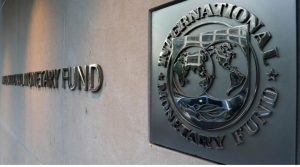Onome Amuge
The recent global geopolitical tensions have the tendency to trigger declines in asset prices, strain financial institutions, and curtail lending to the private sector, ultimately dampening economic activity and jeopardising financial stability, the International Monetary Fund (IMF) has warned.
The multilateral lender, in its latest Global Financial Stability Report, highlighted that events such as wars, diplomatic friction, and terrorism can severely disrupt international trade and investment flows.
The IMF further noted that the unpredictable nature, infrequent occurrence, and uncertain duration of geopolitical shocks make them particularly challenging for investors to price, often leading to sharp market corrections when they materialize.
The report also pointed out a significant correlation between heightened geopolitical risk, as indicated by increased adverse news mentions, and declining stock prices. On average, major geopolitical events are associated with a one percentage point monthly drop in stock prices across countries, with emerging market economies experiencing a more pronounced average decline of 2.5 percentage points.
Notably, the IMF found that international military conflicts have the most severe impact on emerging market equities, triggering an average monthly drop of five percentage points – double the impact of other types of geopolitical events. This is likely due to the more substantial economic disruptions associated with such conflicts.
The analysis also revealed that elevated geopolitical risks can strain public finances as economic growth slows and government spending increases. Consequently, sovereign risk premiums, measured by credit default swap prices, tend to rise following geopolitical events. The IMF emphasised that these financial strains are particularly acute in emerging markets, where premium increases can be up to four times larger.
Furthermore, the report highlighted the potential for cross-border spillovers through trade and financial linkages, increasing the risk of contagion. When a major trading partner is involved in an international military conflict, stock valuations in other economies decline by an average of approximately 2.5 percent. Similarly, sovereign risk premiums increase when trading partners are affected by geopolitical events, with the impact being at least twice as large for emerging market economies characterised by high public debt, low international reserves, and weak institutions.
The IMF identified heightened uncertainty as a key transmission channel for asset price reactions. Geopolitical shocks tend to elevate macroeconomic uncertainty for several months. Recognizing these risks, investors demand a premium for holding assets that may underperform during such events.
The report cautioned that a sudden drop in asset prices could ultimately strain banks and non-bank financial institutions, potentially spilling over to the broader financial system and the real economy. For instance, banks may reduce lending, and investment funds could face lower returns and increased redemption risks when exposed to geopolitical shocks.
Addressing risk mitigation, the IMF acknowledged the seemingly constant barrage of unpredictable global events. However, it stressed that the financial sector and its regulators can take proactive steps to bolster financial stability.
The IMF recommended that financial institutions and their supervisors dedicate sufficient resources to identify, quantify, and manage geopolitical risks, including through stress tests that consider the potential interactions of these risks with financial markets. Furthermore, financial institutions are advised to maintain adequate capital and liquidity buffers to absorb potential losses stemming from geopolitical events.
For emerging markets and developing economies, the IMF suggested further developing and deepening financial markets to enhance investors’ ability to manage risks.
In conclusion, the report emphasised that countries with weaker buffers are particularly vulnerable to geopolitical shocks, underscoring the importance of sufficient fiscal policy space and adequate international reserves to better withstand such disruptions.









